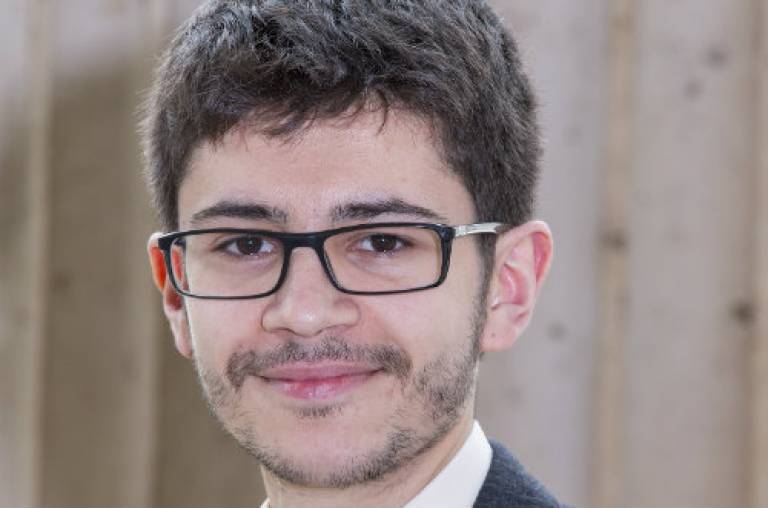Spotlight on Provost's Teaching Award 2016 winner Martin Rosillo-Lopez
16 June 2016
Martin Rosillo-Lopez, Postgraduate Teaching Assistant (UCL Chemistry), received a Provost's Teaching Award at this year's Teaching and Learning Conference.

What did your win highlight?
I am heavily involved in a chemistry lab course for biologists. This can be particularly challenging as students are required to understand concepts outside of their specified field of study which means more effort is needed to inspire them. Naturally, the reward when students finally understand these concepts is all the greater.
Through demonstrating lab work, marking lab reports and providing feedback I was able to identify aspects of the lab scripts and assessment questions that students found confusing. I rewrote the lab scripts to clarify students’ understanding and worked with the course organiser to write quiz questions. The quizzes are open-book tests taken online by students under exam conditions after the completion of the lab course and are based on concepts from the lab (but not completely focused on the lab itself). Moving from lab report assessment to online tests improved the quality of student feedback enormously. The large number of lab scripts I was previously required to mark within the short time frame meant that high quality feedback could not be given to individual students. The online assessment now allows students to be given feedback on each answer they give, whether the answer is correct or incorrect, providing them with new information each time they submit an answer. This allows students to easily build up their knowledge and understanding.
I recognised that biology students are less confident in a chemistry lab environment compared with the chemistry undergraduates so to enhance student confidence I filmed myself carrying out the different practicals highlighting those particular areas which students struggle with the most. The videos were uploaded to the Moodle forum and were viewed over 500 times, showing that these were popular resources. The students also commented on how helpful these videos were when they saw me in the lab. These videos and online assessments will be used for future students and improved each year in line with student feedback.
On the online Moodle forum I answered any questions that came about from the videos to remove any ambiguity and increase student confidence and posted new discussions about the practicals. The main queries were about the analysis for each experiment. To offer additional support I set up office hours for each experiment every week so that students could come to the corresponding session with any questions. This one to one support was very important for improving the student experience on this course and provided an additional level of feedback that was not possible previously.
What does this award mean to you?
The award means a lot to me because my colleagues have recognised my contribution to teaching. I believe that a teacher should always see themselves as a student and continually strive to learn better ways to teach, each year performing better than the last.
What new ways of teaching are you looking into at the moment?
Unfortunately, since I am currently in the final year of my PhD with only a few months left to go I am mainly focused in writing up my thesis. However, I am certain that the next stage of my career will involve a considerable teaching element to it and I plan to use the skills I have obtained to improve the teaching quality wherever I go.
What advice would you give to a colleague who would like to be more innovative in their teaching?
Innovation is particularly important when the traditional teaching style is no longer effective. The advice I would give to a colleague is to firstly consider the academic backgrounds of all the students. If the background is different from your own, then you might want to start looking for new ways to relate the content you a trying to get across with material the students are used to seeing. For instance, if you’re a chemist discussing the chemical structure of DNA to a class of medical/biology students then you should first discuss the context of DNA with regards to the biological cell. Then you can gradually move on to the points you are trying to make. This ensures that the students are engaged from the very beginning.
 Close
Close

